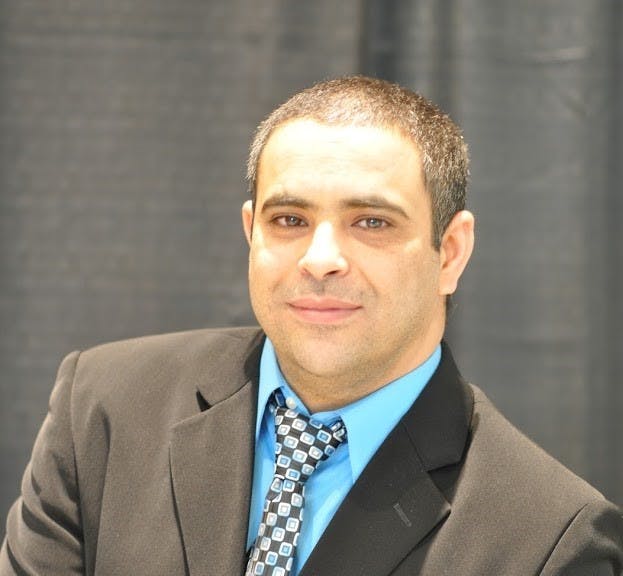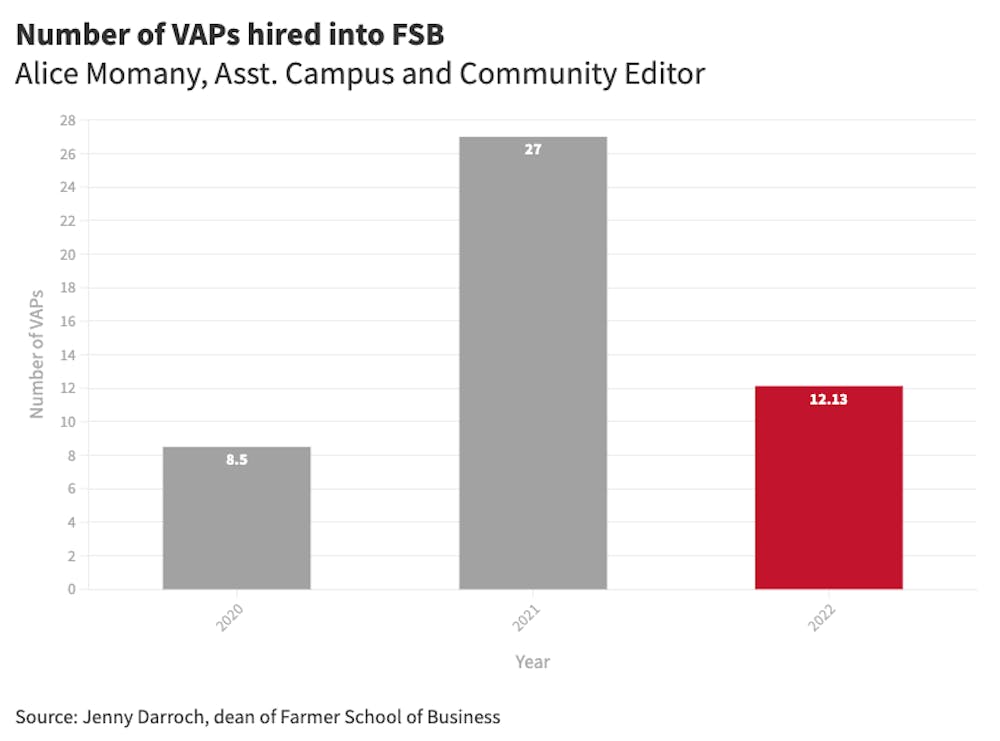In 2020, more than half of the visiting assistant professors (VAPs) at Miami University did not have their contracts renewed for the fall 2020 semester as the university prepared to lose tens of millions of dollars from the COVID-19 pandemic. Two years later, the university is working to refill those positions.
VAPs are full-time non-tenure track faculty members that operate on yearly contracts. Contract renewal depends on need from their department, and contracts are renewable for up to five years.
According to the Integrated Postsecondary Education Data System (IPEDS), for the 2019-2020 school year, Miami employed about 220 full-time, non-tenure track, instructional staff with faculty status on an annual contract. For the 2020-2021 school year, the number decreased to 93.
Farmer School of Business returns to pre-COVID employment
In the Farmer School of Business (FSB), Jessica Bathe, personnel manager for FSB, said about 20 VAPs did not have their contracts renewed.
“We were given instruction to have our [other] faculty teaching at their maximum workload as [much as] possible,” Bathe said.
In fall 2021, Miami’s Board of Trustees voted to allocate $24 million to hire more VAPs and refill some of the positions cut by the pandemic.
IPEDS has not yet released data for the 2021-2022 school year, but Bathe said FSB has returned to its “pre-COVID workload.”
In an email to The Miami Student, Jenny Darroch, dean of FSB, said the department hired 8.5 full-time equivalent VAPs in 2020. A decimal indicates part-time VAPs that teach less than four classes a semester. In 2021, FSB hired 27 VAPs, and in 2022, FSB hired 12.125.
“The following year [2021], when things kind of flattened out a bit, our dean really wanted to help, and the Provost Office agreed, and we went back to our pre-COVID workload … and that’s where you see that huge influx,” Bathe said. “We had to hire 27 people to get us back to where we were.”
Currently, FSB employs 31 VAPs. In 2019, it employed 33.
“We’re technically three-fourths of a person down, but our class size this year was significantly lower than last year too, so that fluctuates every year with our temporary faculty based on how many majors we have and what department they’re in,” Bathe said.
Enjoy what you're reading?
Signup for our newsletter
VAPs in College of Creative Arts “comparable” to 2019
Similarly, the College of Creative Arts (CCA) is seeing an increase in the number of VAPs teaching in the department.
“There were obviously budget concerns during COVID, and it’s tougher to cut tenured people, so the visiting people took the bigger hit here, but my understanding is a whole lot of those have come back,” said John Weigand, interim dean for CCA.
Although Weigand could not provide exact data, he confirmed that the percentage of VAPs in CCA is “stable” and comparable to the number of VAPs in 2019.
“I know we were really tight with [hiring], but it’s come back up because visiting people are critical to the mission,” Weigand said.
VAPs enjoy teaching despite heavier workload
Sean Hudson, a VAP in the College of Arts and Science (CAS), was hired for the 2021-2022 school year. He is in his second year at the university on a 4-4 teaching load – four classes in the fall and four classes in the spring – in the department of geography.
Hudson, who previously worked at the University of Delaware, said he feels supported by his department and enjoys his students' ambition.
“I really enjoy [Miami],” Hudson said. “The undergrads here are great. It’s hard not to draw comparisons, but the undergraduates are way more motivated. They’re more engaged.”
Hudson said teaching four classes can be taxing, but he enjoys teaching at Miami and anticipated a heavy workload as a VAP.
“For the classes where I’ve not had a [Teaching Assistant], that gets a little overwhelming, but for a 4-4 load at a more teaching-focused school, especially with contingent faculty, it’s what you expect,” Hudson said.
Although Hudson was hired last year, he said he has noticed more VAPs this year in CAS, including the hiring of his wife, Janice Hudson, who is also a VAP in the department of geography.
Christopher Makaroff, dean of CAS, did not respond to requests for comment on the number of VAPs in the department throughout the past four years.

Sean Hudson, a VAP in the department of geography, enjoys teaching at Miami and feels supported by his department.
Competition for tenure affect VAPs
Abdulmajid Mrebit, a former VAP in the College of Engineering and Computing (CEC), had a different experience from Hudson.
Mrebit was hired before the pandemic in January 2020. He found out in April 2022 that his contract would not be renewed for the fall 2022 semester. Mrebit currently works as a part-time professor at the University of Dayton (UD).
“I knew since April that Miami might not accept me, so I already started looking for other places,” Mrebit said.
Mrebit taught on a 4-4 teaching load at Miami. He stays on staff in case CEC needs him to teach.
“If they need me, they hire me," Mrebit said. "That’s what they told me from the beginning. Of course, I’d like to go back, but that’s the market, it depends on situations.”
Mrebit said he has not received any notice if he will be teaching in the spring 2023 semester. Mrebit is teaching one course at UD and is looking for a full-time job but said it’s difficult to find one in higher education.
“Of course, everybody wants to be tenure track … but it’s a kind of competition,” Mrebit said. “Universities look for the ones who do more research and bring more funding to their departments.”

Adulmajid Mrebit was a VAP in the College of Engineering and Computing but his contract was not renewed for the fall 2022 semester.
Despite not being renewed, Mrebit said he liked teaching at Miami.
“I really enjoyed the department, and [CEC] was very organized, very supportive and encouraged students to do better,” Mrebit said.
Beena Sukumara, dean of CEC, and Jason Lane, dean of College of Education, Health and Society (EHS), also did not respond to requests for comment.




